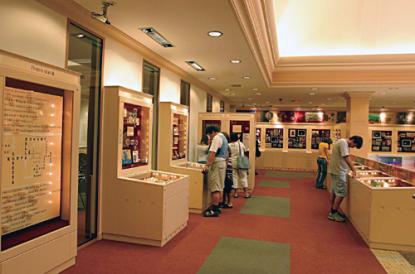2026. January 19. Monday
Visitor Centre of the National Bank of Hungary - Budapest
|
|
Address: 1054, Budapest Szabadság tér 8.
Phone number: (1) 428-2751
E-mail: sajto@mnb.hu
Opening hours: Closed!
|
This section of the exhibition deals With the reasons behind the evolution of money, the factors determining cash mol ement and 110\1 money is being replaced in the 21st century by modern devices. Next to kaori shells, salt and teabricks. precious metals emerges as a suitable tool for barter Metal and coins satisfy lie seven main requirements for flexible and smooth trading. The most important aim is to will and maintain users' (that is to say everybody's) confidence in a given currency.

Despite their undeniable advantages, coins made of metal are hard to use from certain aspects: they are heavy due Io their metal content, are not safe in long-distance trade and the metal resources of the earth are limited. As a result, from the 10th and 11th century, paper became more widespread as a means of payment for larger amounts: this is how banknotes evolved. At the same time, the use of banknotes particularly underlines the importance of security features, as notes have hardly any intrinsic value. The main reason for introducing state-of-the-art means of payment (credit cards, telebanking, and electronic purse) was also to create and operate the most secure form of payment systems.
In Hungary today on average there are 24 banknotes and 200 coins in circulation per person. The replacement of a certain denomination or a whole series of banknotes, as well as their withdrawal and the introduction of a new currency decision of the MNB.

Despite their undeniable advantages, coins made of metal are hard to use from certain aspects: they are heavy due Io their metal content, are not safe in long-distance trade and the metal resources of the earth are limited. As a result, from the 10th and 11th century, paper became more widespread as a means of payment for larger amounts: this is how banknotes evolved. At the same time, the use of banknotes particularly underlines the importance of security features, as notes have hardly any intrinsic value. The main reason for introducing state-of-the-art means of payment (credit cards, telebanking, and electronic purse) was also to create and operate the most secure form of payment systems.
In Hungary today on average there are 24 banknotes and 200 coins in circulation per person. The replacement of a certain denomination or a whole series of banknotes, as well as their withdrawal and the introduction of a new currency decision of the MNB.
